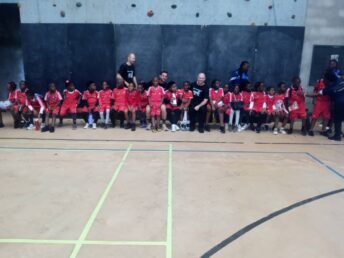It's time for you to enter the job market. The first step to getting your first job is to have a resume. It is very likely that you are already unsure about how to make a perfect resume. We'll help you rock your resume for your first job, and show you how to make a respectable resume. Even without professional experience, you will need a resume to start working.
It is very likely that even before scheduling a job interview, the employer will ask for your resume. It will be from him that the first opportunities will arise. If you find yourself in this situation, read this post until the end to learn how to make an attractive resume.
But what is a curriculum vitae?
First you need to know what a resume is, in case you don't already know or have a superficial idea about it. In short, it is a document that briefly contains information about a person's education, work experience, qualifications and abilities.
It is possible to write an excellent resume, even without professional experience. In this case, when making the resume, you will prioritize your qualities, knowledge and merits. The way is to make a good impression on the employer. Show how much this first job opportunity will also be advantageous for whoever employs you.
Therefore, this is not the time to stall, but to do it well. It is necessary that this curriculum for the first job contemplates some requirements considered mandatory. Personal information, professional objective, academic background, languages, extra courses, additional information.
We will help you by explaining item by item how to prepare a resume. That way it will be easy!
1 - Personal information
Every resume starts with basic information about you. How to do it: full name, age, marital status, address, email, social media links and contact phone number. An important information about the email. It needs to be a professional looking email, preferably with your name on it. It is not recommended to use inappropriate nicknames or terms that do not convey a professional message.
2 – Professional objective
A common mistake in this curriculum vitae item is to put generic information like “my goal is to help the company grow”. The best thing to do is to summarize what your professional objective is in relation to the vacancy you are applying for. Be direct and focus on the job itself, as you don't have professional experience yet.
You can also highlight the vacancy as follows: “I am interested in a job/internship in the administrative area of company X” (insert company name). Since you are looking for your first job, show interest in starting positions. Intern if you're in college, young apprentice if you're in high school.
If you find it easy to be among people and relate, you can direct the objective to the sales or service area, for example. If your aptitude is for calculations/numbers, make this clear and mention your interest in working in the finance department.
3 – Academic background
This is an essential item on how to write a resume for a first job. Academic background, that is, your level of education, will count many points in your favor.
Be clear and mention the course, institution, start and completion date (or expected completion date). It is important to include only formal education. It is recommended that they are recognized courses with certifications.
4 - Languages
Increasingly of job vacancies, having knowledge of one language or more will be a difference in your resume for your first job. In this item you must put your education, if you have taken courses, degree of knowledge in each language mentioned, as well as your level of proficiency.
05.- Marital Status
Don't forget to add marital status to your resume. It is very important because you will get medical benefits according to your marital status.
6 – Extra courses
On this topic, you can place extra courses that you have taken, in addition to your academic training. These are courses that the employer will see as a difference to the intended vacancy. Highlight briefly, if they are really relevant: special classes, lectures, workshops, online courses, academic projects.
7 - Additional information
Here you will have the opportunity to list other qualitative information that will help you get your first job. In this item, you should think about elements that make you stand out from the other candidates.
- Was there any discipline that you excelled in college that is worth mentioning because there will be a differential in this job vacancy?
- Did you take optional courses that may also be relevant to the position?
- Did or do you do volunteer work?
- Did you work in a junior company or academic center?
- Have you won awards or had achievements that deserve to be highlighted?
How to make a resume without professional experience?
A very frequent question is how to put professional experience on the resume for the first job. As shown above, by filling out these main things, you will already be differentiating yourself from other candidates. Highlight other experiences that helped in your development, your qualities and knowledge. The lack of professional experience will not be an impediment to gaining a job as a beginner, young apprentice, intern or recent graduate.
The fact is that everyone needs a first experience to start in the job market. Is not it? When you do not have professional experience, your quality and differentials should be prioritized. The company has to see you as an opportunity. A person who will add and who is willing to learn and grow professionally. Any form of qualification can work in your favor. Make it clear in your resume that you are interested in progressing personally and professionally.
Never lie on your resume
One of the biggest mistakes you can make is lying on your resume. Inventing experiences, courses, and other information is serious and easy to discover nowadays, especially with the internet. So, be truthful with all the information you put on your resume for your first job. Lying won't guarantee you that dream job vacancy. Quite the contrary, avoid going through embarrassing situations. Trust in your abilities. Be honest, the doors will open in the job market.
Be careful when writing your resume
Knowing all the information that your resume for a first job needs to have, be aware of how you are going to write it. Stick to the cultural norms of the language, correct spelling, concordance, fluency and coherence of the text. Do a final proofread and have other people read it for you too. Have you ever thought about submitting a resume with errors or incorrect information? Therefore, care and attention when writing the curriculum vitae.
Write the resume carefully and carefully. The most common form of presentation of your resume when it is submitted online is the pdf format. If you are going to send it by email, it is best to transform your word file into a pdf. Thus, the employer will receive a “closed” document, with no possibility of tampering.
Some Gaffes You Should Avoid
We have listed below some information that is usually placed, but that in fact should not be included. They can even be seen as “gaffes”, so avoid them.
- Do not mention personal data such as your document numbers, spouse or relatives.
- Do not place a salary claim if not requested by the employer. In the body of the curriculum vitae, it is not recommended.
- Do not add copies of certificates and diplomas to your resume. If necessary, only take it to the job interview.
- Make a resume in a formal, “clean” way, without using colored backgrounds, very different fonts, drawings and excessive photos. Companies still opt for the traditional.
- Do not include reference letters or contacts.
- Do not put titles like “curriculum vitae” or “resume”
- Do not use photos or mention the names of family members.
- Do not sign or date.







